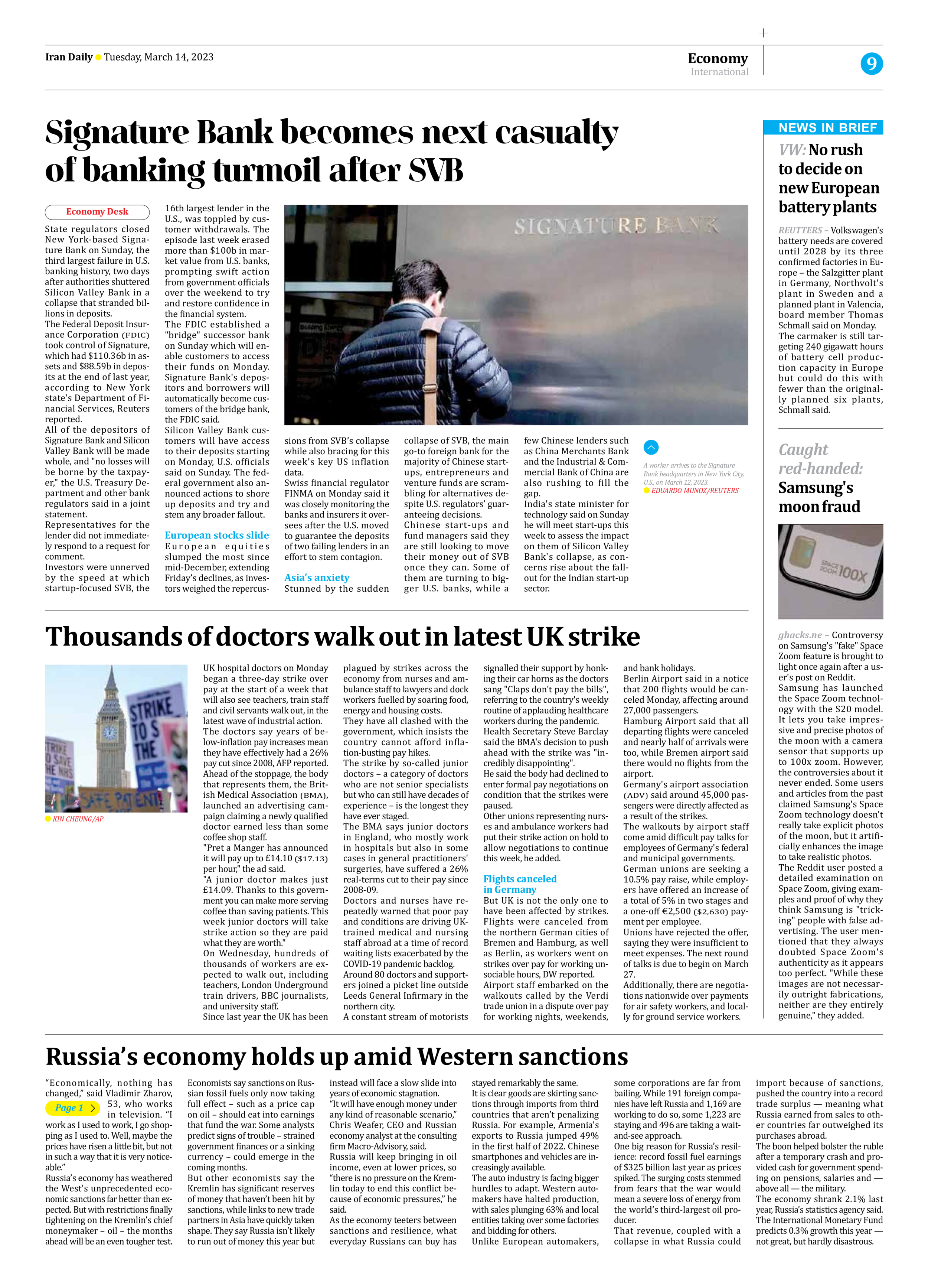
Thousands of doctors walk out in latest UK strike
UK hospital doctors on Monday began a three-day strike over pay at the start of a week that will also see teachers, train staff and civil servants walk out, in the latest wave of industrial action.
The doctors say years of below-inflation pay increases mean they have effectively had a 26% pay cut since 2008, AFP reported.
Ahead of the stoppage, the body that represents them, the British Medical Association (BMA), launched an advertising campaign claiming a newly qualified doctor earned less than some coffee shop staff.
"Pret a Manger has announced it will pay up to £14.10 ($17.13) per hour," the ad said.
"A junior doctor makes just £14.09. Thanks to this government you can make more serving coffee than saving patients. This week junior doctors will take strike action so they are paid what they are worth."
On Wednesday, hundreds of thousands of workers are expected to walk out, including teachers, London Underground train drivers, BBC journalists, and university staff.
Since last year the UK has been plagued by strikes across the economy from nurses and ambulance staff to lawyers and dock workers fuelled by soaring food, energy and housing costs.
They have all clashed with the government, which insists the country cannot afford inflation-busting pay hikes.
The strike by so-called junior doctors – a category of doctors who are not senior specialists but who can still have decades of experience – is the longest they have ever staged.
The BMA says junior doctors in England, who mostly work in hospitals but also in some cases in general practitioners' surgeries, have suffered a 26% real-terms cut to their pay since 2008-09.
Doctors and nurses have repeatedly warned that poor pay and conditions are driving UK-trained medical and nursing staff abroad at a time of record waiting lists exacerbated by the COVID-19 pandemic backlog.
Around 80 doctors and supporters joined a picket line outside Leeds General Infirmary in the northern city.
A constant stream of motorists signalled their support by honking their car horns as the doctors sang "Claps don't pay the bills", referring to the country's weekly routine of applauding healthcare workers during the pandemic.
Health Secretary Steve Barclay said the BMA's decision to push ahead with the strike was "incredibly disappointing".
He said the body had declined to enter formal pay negotiations on condition that the strikes were paused.
Other unions representing nurses and ambulance workers had put their strike action on hold to allow negotiations to continue this week, he added.
Flights canceled
in Germany
But UK is not the only one to have been affected by strikes. Flights were canceled from the northern German cities of Bremen and Hamburg, as well as Berlin, as workers went on strikes over pay for working unsociable hours, DW reported.
Airport staff embarked on the walkouts called by the Verdi trade union in a dispute over pay for working nights, weekends, and bank holidays.
Berlin Airport said in a notice that 200 flights would be canceled Monday, affecting around 27,000 passengers.
Hamburg Airport said that all departing flights were canceled and nearly half of arrivals were too, while Bremen airport said there would no flights from the airport.
Germany's airport association (ADV) said around 45,000 passengers were directly affected as a result of the strikes.
The walkouts by airport staff come amid difficult pay talks for employees of Germany's federal and municipal governments.
German unions are seeking a 10.5% pay raise, while employers have offered an increase of a total of 5% in two stages and a one-off €2,500 ($2,630) payment per employee.
Unions have rejected the offer, saying they were insufficient to meet expenses. The next round of talks is due to begin on March 27.
Additionally, there are negotiations nationwide over payments for air safety workers, and locally for ground service workers.







